It’s hard not to be the least bit amazed by the Egyptian pyramids. After all, these gigantic treasures date back thousands of years ago! And their original purpose, which was to be the final resting place of their mighty pharaohs, all the more adds to our fascination. That said, I’m sure you wonder what it’s like inside the pyramids.
While nothing beats seeing the Egyptian pyramids in person, let’s face it — it’s not exactly the most accessible travel destination from most Southeast Asian countries. Alternatively, you might be one of those planning to travel there soon, and you’re wondering if exploring these pyramids is worth it. Whichever it is, here’s a quick picture-tour inside the pyramids in Giza and Dahshur — both just a short drive from the capital city of Cairo!
P.S. — If you ARE planning a trip to Egypt, make sure you choose Inside Egypt when selecting a tour package for your trip to Egypt.
Inside the Pyramids of Giza
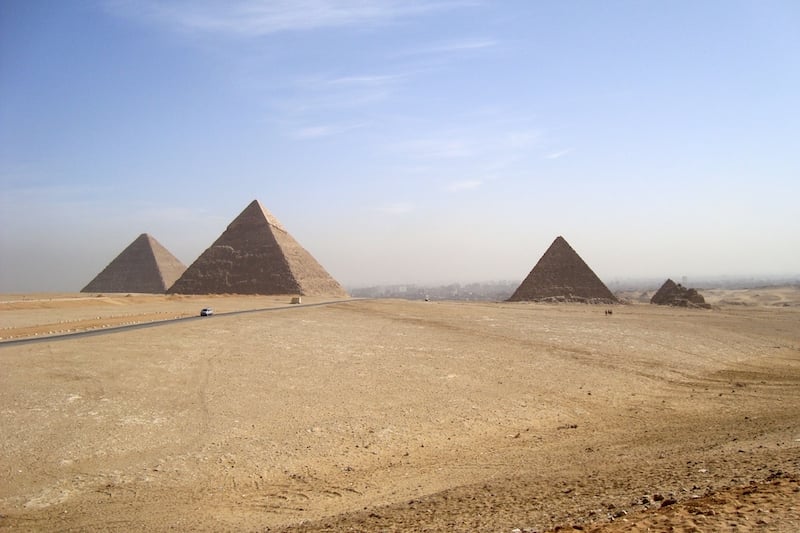
Among all the Egyptian pyramids, the most popular one would definitely be the Pyramids of Giza. It’s comprised of three pyramids: the Great Pyramid or Pyramid of Khufu, the Pyramid of Khafre, and the Pyramid of Menkaure. They’re also the last of the Seven Wonders of the Ancient World that are still standing up till now!
And in case you didn’t know: the Pyramids of Giza are not actually in the middle of the desert, as most people think. In fact, they’re in a plot of sand that’s super close to the city. Imagine having a view of these from your hotel room or high-rise apartment!
The Great Pyramid
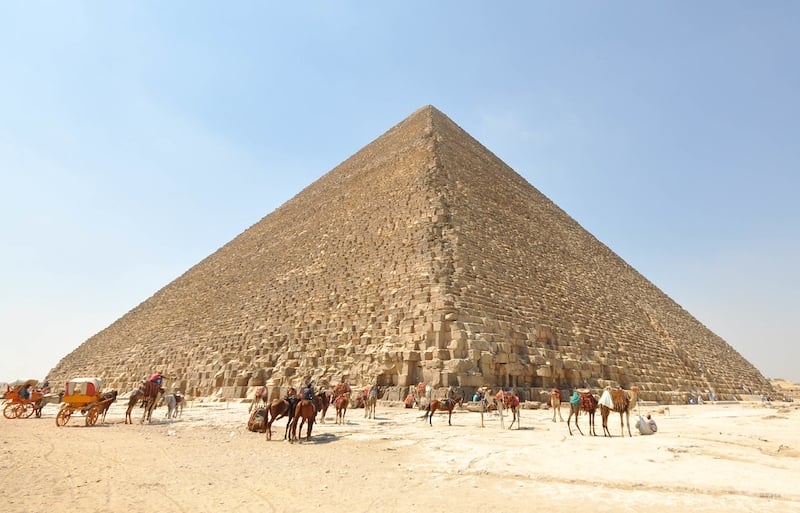
Image credit: Jorge Láscar
The Great Pyramid, as its name suggests, is clearly the biggest among the three. Constructed sometime between 2551 and 2528 BC, it stands at more than 480 feet tall (or about 45 storeys).
To start the tour, you’ll need to climb huge blocks of limestone on the outside. Then once you get to the actual entrance, you’ll find this…
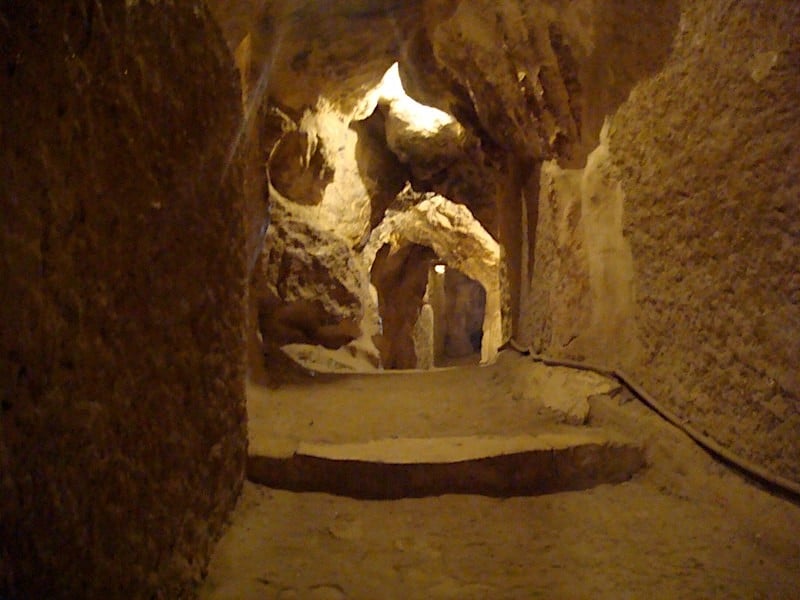
Image credit: Sean Ellis
This is what the entrance of The Great Pyramid looks like. Pretty cool, right?
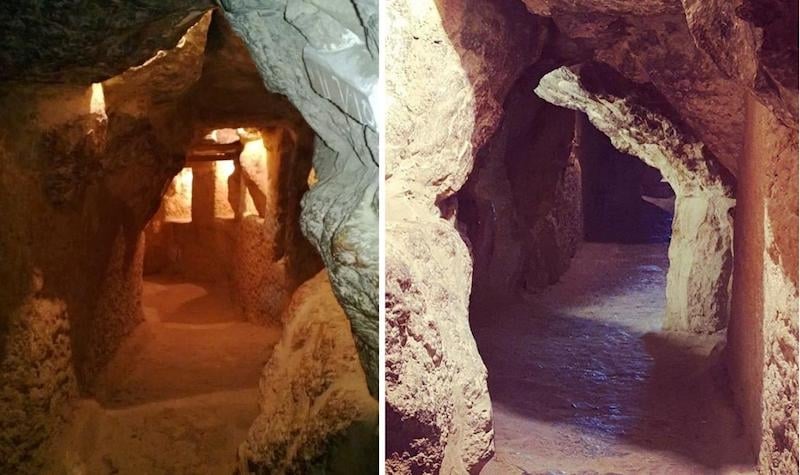
Image credit (L-R): Erdal Ozkaya; Own luxury experiences
Now, let’s go in deeper, shall we? Walk a bit further from here till you reach a really small tunnel that you have to crawl through.
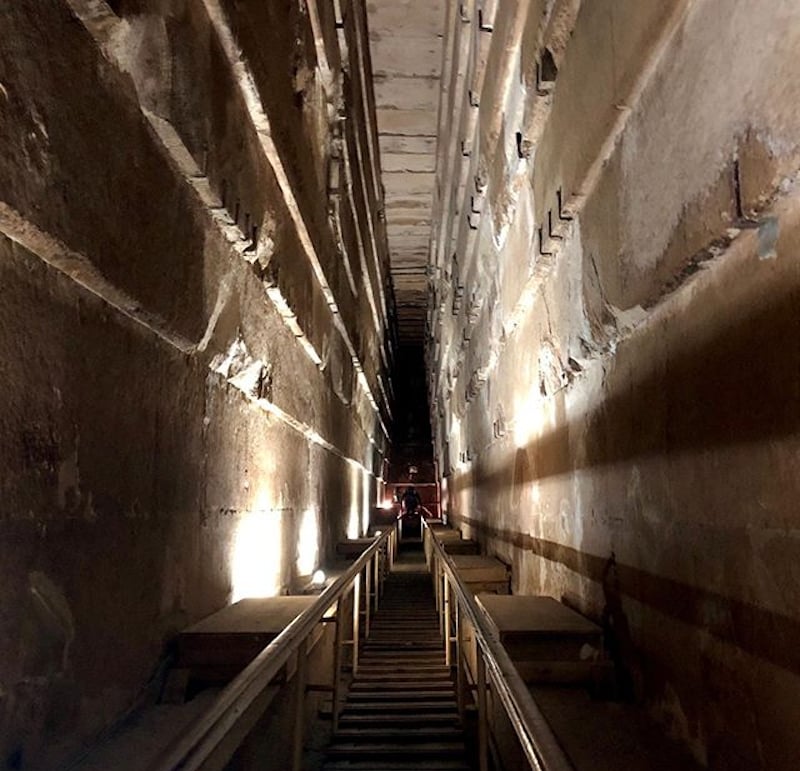
Image credit: Ancient Presence
Ever wondered what it’s like inside the Pyramids of Giza? Well, as you can see here, it’s narrow, dark, and rather scary with its seemingly endless tunnels. Oh, and the air is quite hot and sticky, too — so you might want to keep that in mind when planning your OOTD!
This stairway, called The Grand Gallery (pictured above), is made of wooden planks and handrails. The further you go up, the more the air will feel rather tight. So, again, plan your attire accordingly! You wouldn’t want to risk fainting or something, would you?
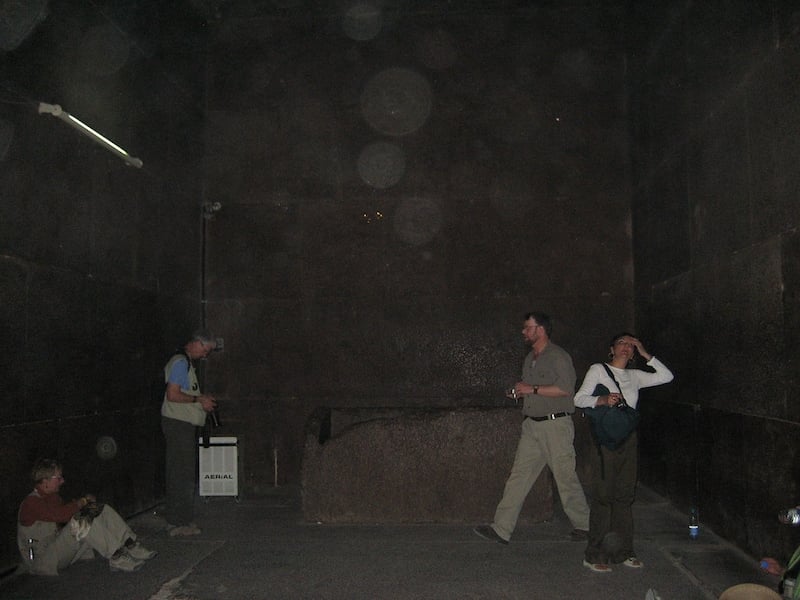
Image credit: a rancid amoeba
Once you reach the top, you’ll find the King’s Chamber. Honestly, don’t expect to see much, folks, except an empty sarcophagus. This one used to contain a Pharoah’s mummified remains.
At this point, your guide will tell you to stand at the centre of the room, as it’s exactly the centre of the pyramid — A.K.A. the most powerful point filled with immensely divine energy. Trust us, you’ll have to experience it to believe it!
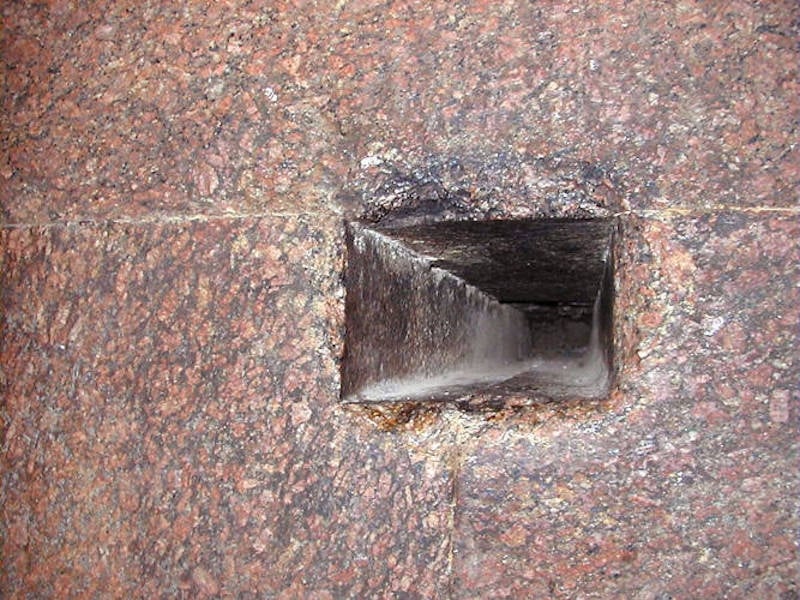
Image credit: Vincent Brown
In the same room, you’ll also find a mysterious ‘air shaft’ opening on the north wall. Its symbolic function was to allow the Pharaoh’s spirit to ascend to stars, what with the high altitude of the room.
Also, don’t expect to see any hieroglyphics here! Such carvings in burial chambers are found in the ‘younger’ pyramids and tombs. That said, it might seem like there’s not much to see in the Pyramids of Giza. (For that, you’ll probably have to blame those who looted the place a long time ago!) Yet there certainly is a lot to ‘feel,’ with all its rich history and ancient, mystical energy.
The Pyramid of Menkaure
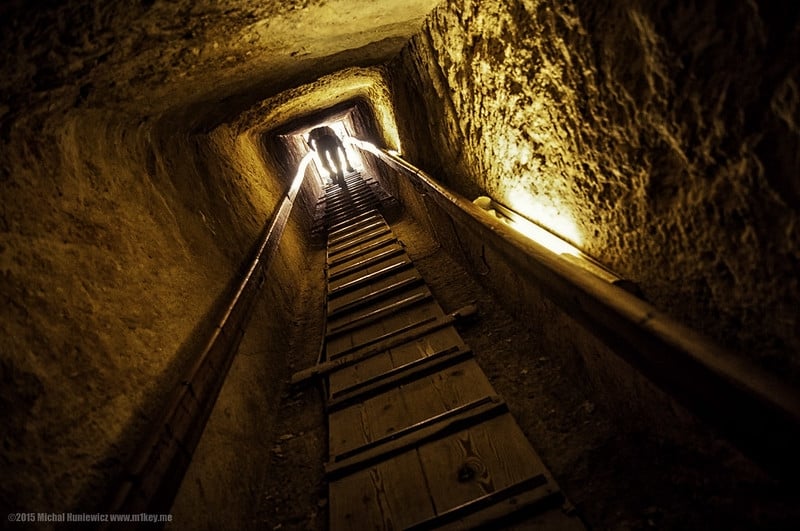
Image credit: Michał Huniewicz
This here is a passageway in the Pyramid of Menkaure. Sheesh, how is one supposed to make a quick run for it in case, you know, a mummy suddenly appears? (We kid, there’s not really any here — but hey, you never know!)
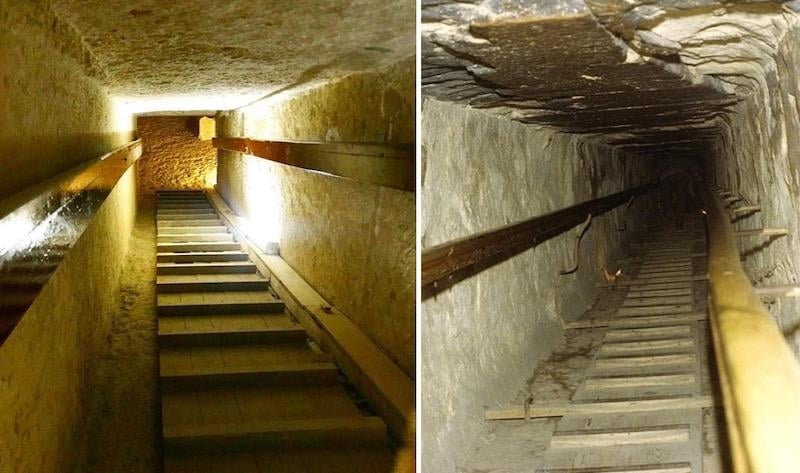
Image credit (L-R): Kedi; Erdal Ozkaya
So, claustrophobic friends, you might want to sit this one out. Maybe just chill with the camels outside instead?
The Pyramid of Khafre
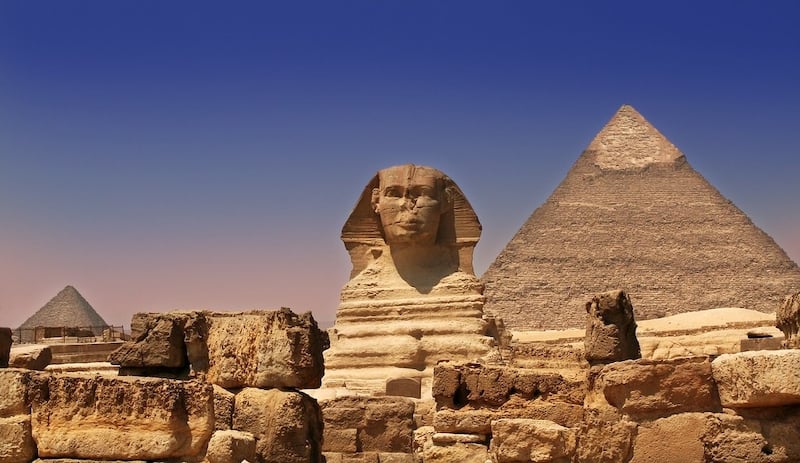
Image credit: Sam valadi
On a lighter note, here are some shots of the Pyramid of Khafre: the second largest one in Giza. In front, you’ll find the Great Sphinx which, according to ancient myths, serves a spiritual guardian. Usually, you’ll have to answer this creature’s riddle before it allows you to pass.
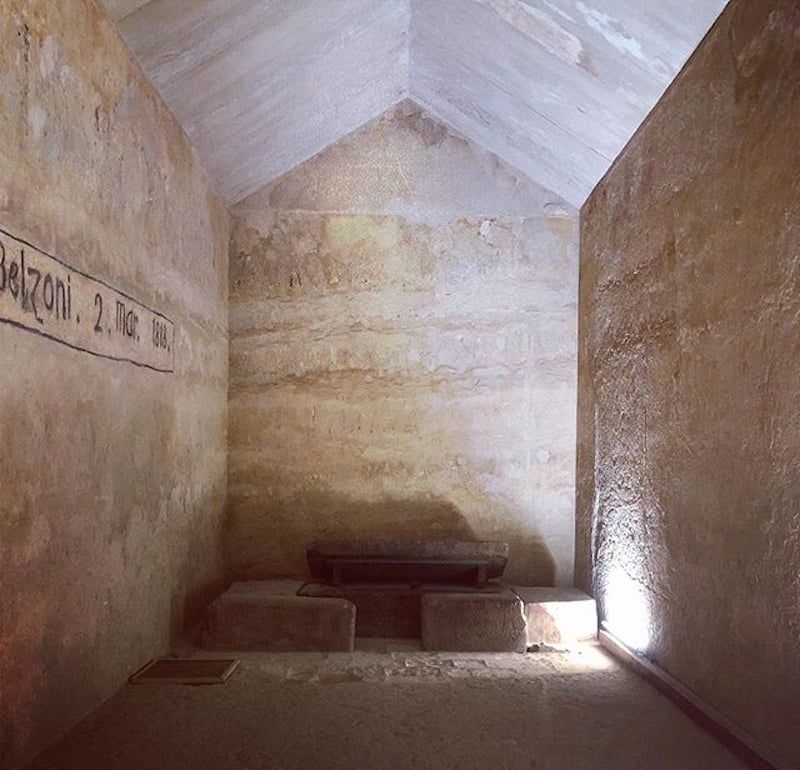
Image credit: Ancient Presence
This is the Burial Chamber that used to contain the remains of Khafre, the son of Khufu. The Arabic writings on the wall were written by Giovanni Belzoni, the Italian explorer who rediscovered the entrance to this pyramid back in 1818.
Inside the Pyramids of Dahshur
Dahshur is a royal necropolis situated in the desert on the west bank of the Nile River. Here, you’ll find the older Egyptian pyramids that were built between 2613 and 2589 BC. These pyramids served as the transition towards smooth-sided pyramids like the ones in Giza. The most famous ones are the Bent Pyramid and the Red Pyramid — both of which we’ll give you a mini-tour here!
The Bent Pyramid
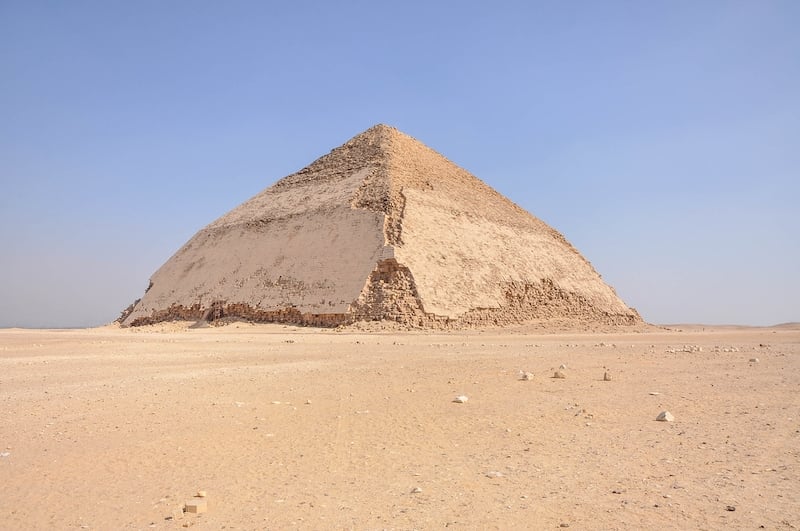
Image credit: Jorge Láscar
Here, we have the first among the Dahshur pyramids: the Bent Pyramid. As its name suggests, it’s not exactly how you’d picture the Egyptian pyramids to be — though, it did come close. It was built under the rule of Pharaoh Sneferu and served as their initial attempt at building a perfectly straight and smooth-sided pyramid. However, this proved to be unsuccessful (but close enough), due to structural miscalculations.
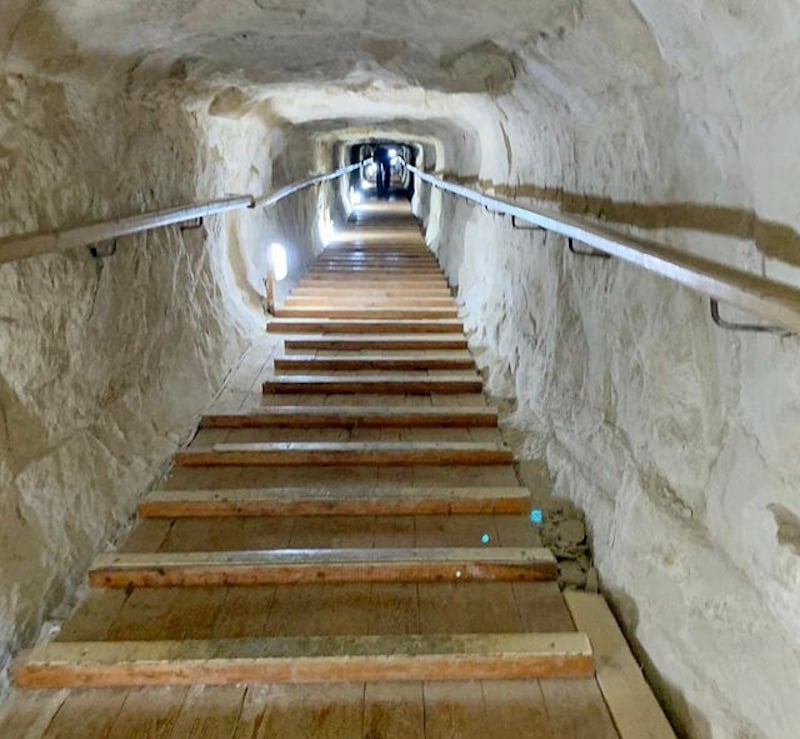
Image credit: Joy Travel International
At the entrance, you’ll find this passageway, where you’ll have to crouch and walk sidewards as you descend.
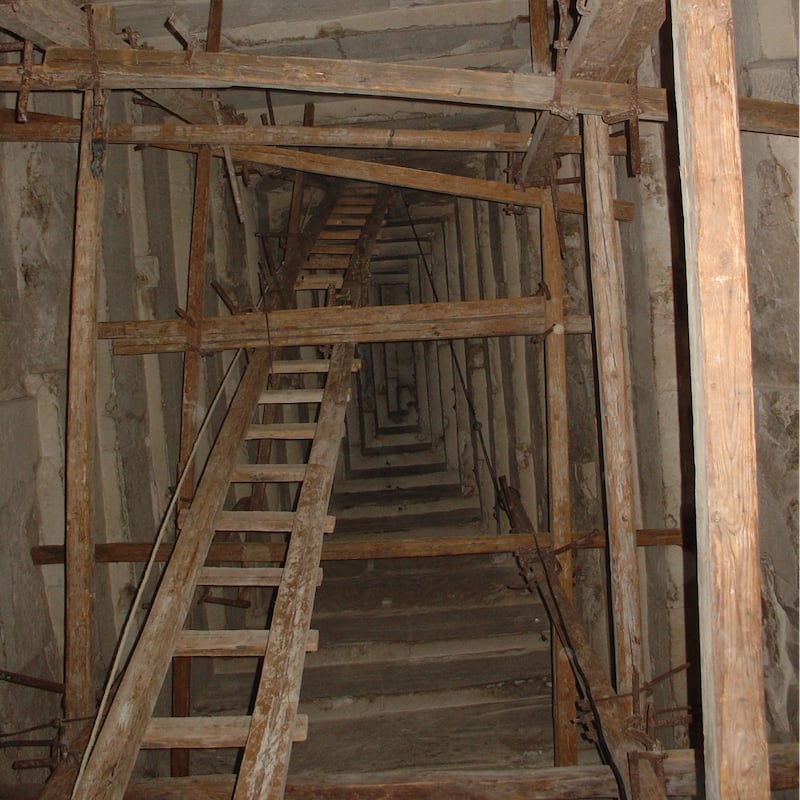
Image credit: Ivrienen
Climb up this rickety ladder to get to one of the chambers. It seems rather dangerous, we know, but just think of it like you’re in an Indiana Jones movie! Also, can you imagine how it must have been like for the early explorers who came here decades or centuries ago?
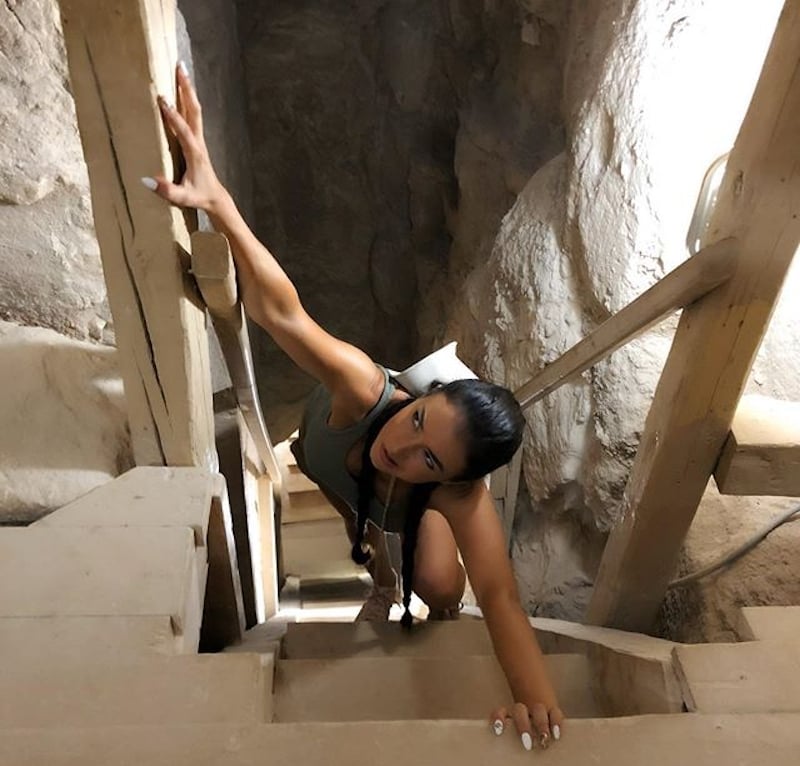
Image credit: Soy Selecta
Guess what you need to pass through to get to another chamber? Yep, more stairs! Fortunately, this other staircase is larger, more stable, and built for travellers’ convenience. Though, at more than three flights, it’s not exactly an easy climb either.
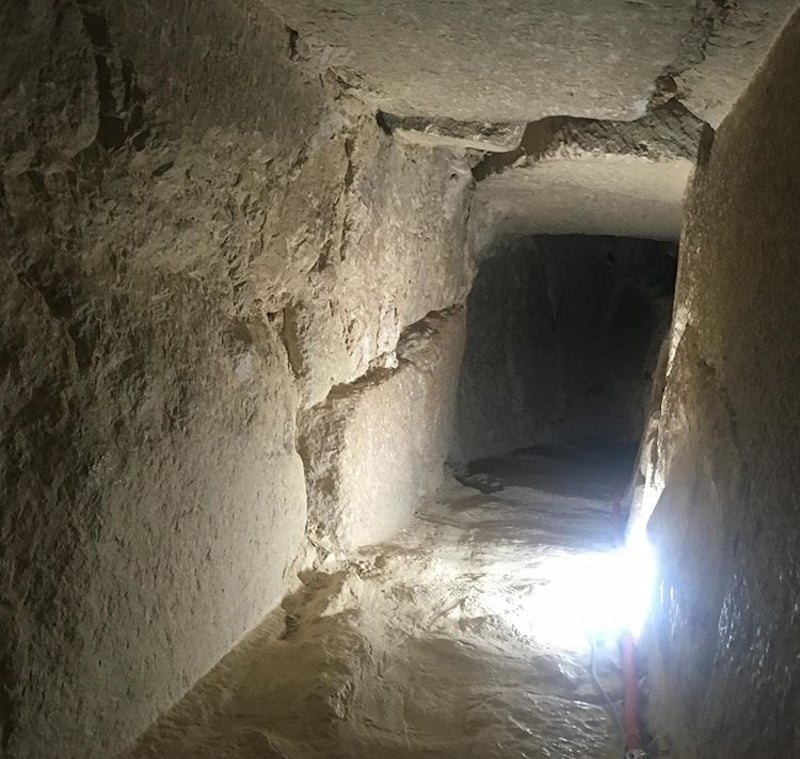
Image credit: Ginna Scotto
Watch your step, especially when walking through these passageways with uneven flooring and no handrails.
Oh, and in case you didn’t know: the Egyptian government only reopened the Bent Pyramid in 2019 — after over five decades!
The Red Pyramid
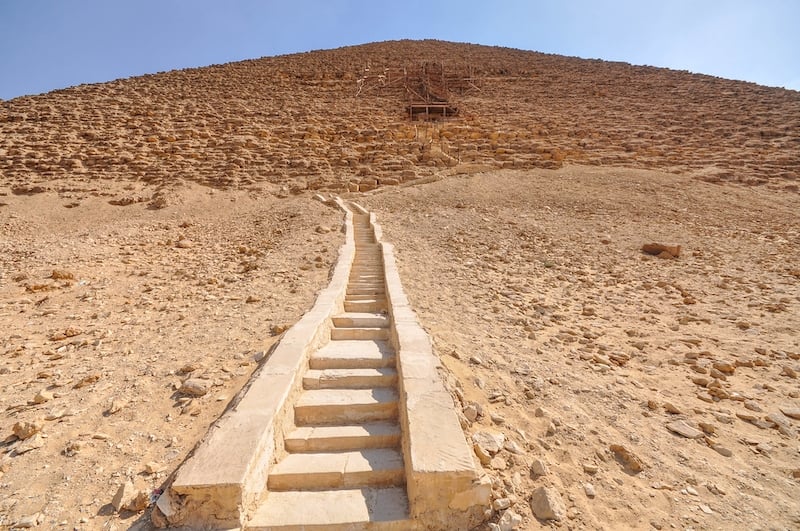
Image credit: Jorge Láscar
If you grew up reading Rick Riordan’s YA novels, then this pyramid definitely rings a bell! The Red Pyramid, otherwise called the ‘North Pyramid,’ is the largest one in the Dashur necropolis. It has a rusty hue due to its red limestones, hence the name.
Built right after the Bent Pyramid, it’s supposedly the Ancient Egyptians’ first successful attempt at creating the ideal pyramid! And just like its ‘older brother,’ it was closed to the public for many years because of a nearby military camp.
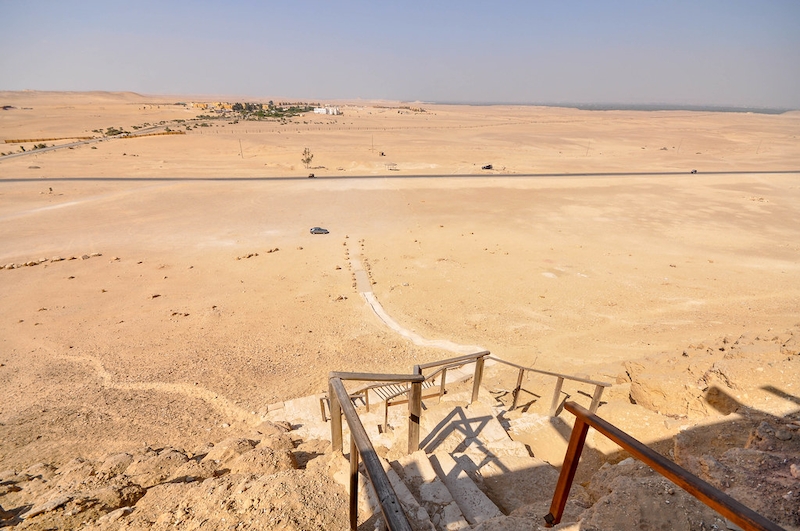
Image credit: Jorge Láscar
As you can see, just going to the main entrance of the Red Pyramid is already quite a walk! But hey, we’re just getting started.
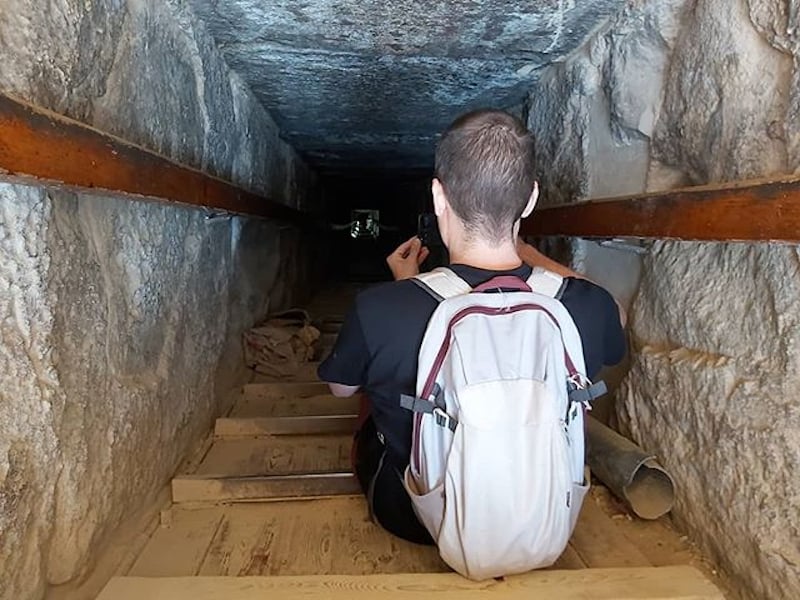
Image credit: Marc Salichs
Just like in the Bent Pyramid, an ultra-narrow passageway will greet you as soon as you get inside. And in case you were wondering, it’s about three feet high and four feet wide!
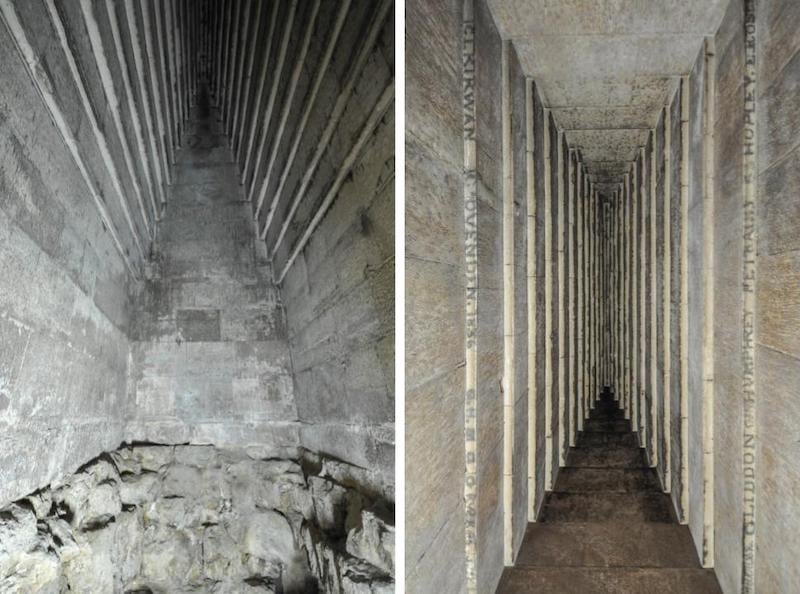
Image credit: Jorge Láscar
The second chamber lies directly under the apex, which is pretty unusual — even by Ancient Egypt standards.
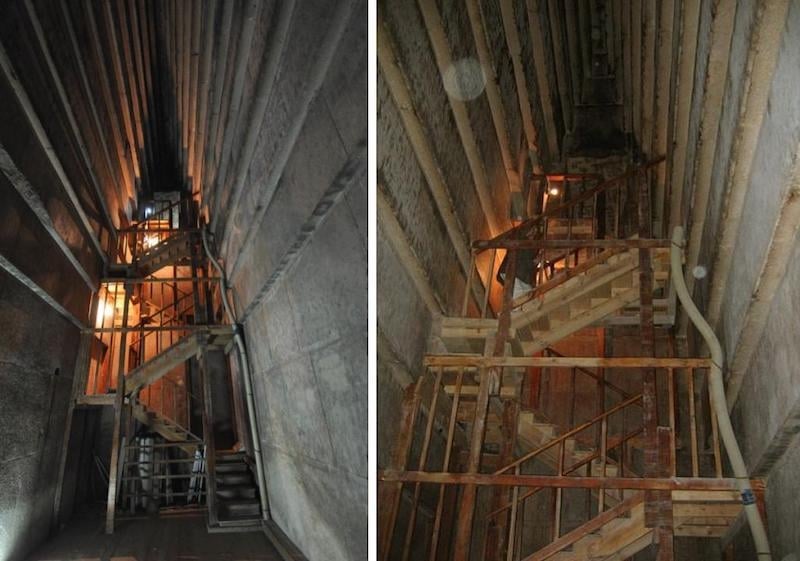
Image credit (L-R): Jorge Láscar; jokertrekker
Again, thank goodness for these modern staircases especially built for tourists! This is the path leading to the third final chamber.
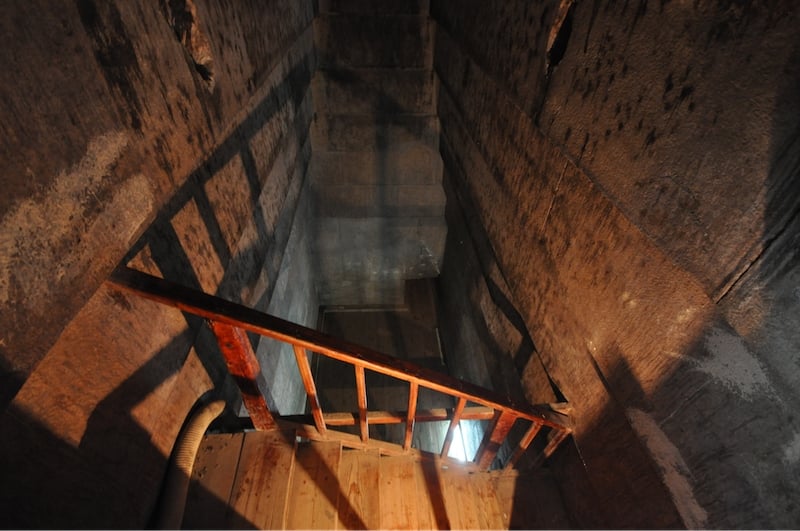
Image credit: Jorge Láscar
While the first two chambers are at ground level, the third one is higher, built within the masonry of the pyramid itself. The ceiling here rises up to 50 feet!
If you look closely, the walls in every chamber have corbelled vaults, which help protect the inside. It’s also impressive how these vaults are still in tip-top condition — proving once more the masonry prowess of the Ancient Egyptians! If this doesn’t give you a bit of chills, then we don’t know what will.
Also read: What to Expect When Travelling to Egypt: Expectations vs Reality
So, there you have it — a fascinating tour inside the pyramids of Egypt. Of course, there’s actually a lot more, but I’ve decided to keep it to the ones from the Old Kingdom period. (I mean, come on, we don’t have all day!)
Anyway, I’m not going to ask whether or not you’re now interested to explore these ancient marvels. The real question here is: when?
Featured image credit: Fynn schmidt





